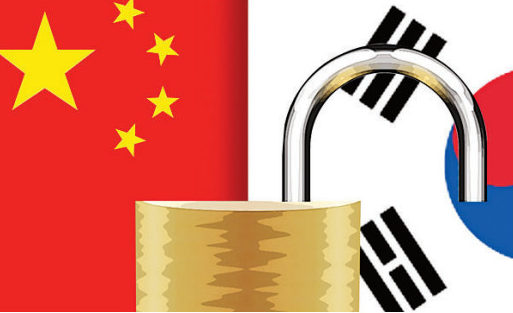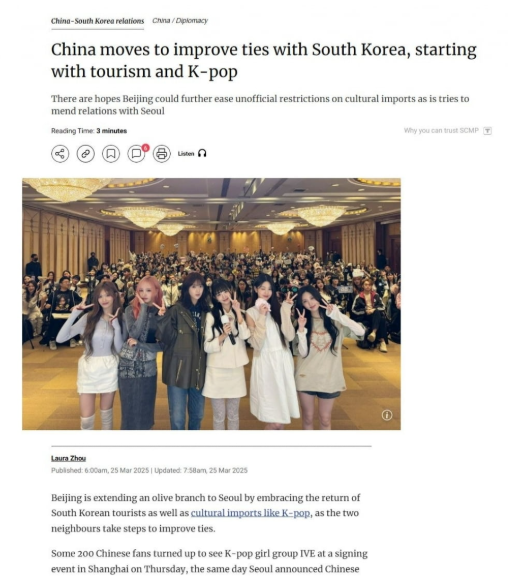
Following the release of Bong Joon-ho’s film “Mickey 17” in China, popular K-pop girl groups such as the group Twice and Ive visited China one after another, and it was interpreted that the Chinese authorities are moving to ease the “Hanryeong (Korean Wave restriction)” to improve relations with South Korea under pressure from the U.S.
Hong Kong’s South China Morning Post (SCMP) reported on the 25th that “China is giving an olive branch (a gesture of reconciliation) to the Korean government with cultural imports such as K-pop and the acceptance of Korean tourists while China and South Korea are taking measures to improve relations.” As a result, China’s unofficial measures to restrict the inflow of Hallyu, which began to be lifted last year, are growing expectations that the so-called “Hanryeong” will be further eased.

IVE visited Shanghai on the 20th and held a signing event. More than 200 fans attended the event. Twice also held a fan signing event to promote the album in Shanghai on the 22nd of last month.
In particular, in the case of TWICE, the scene of Tzuyu, a member of Taiwan, holding a Taiwanese flag in a Korean entertainment program was publicized, and she will attend the event in mainland China for the first time in more than nine years since she was attacked by Chinese netizens in early 2016. China has unofficially applied a ban on Korean music, dramas, and movies since 2016 in protest against the deployment of the Terminal High Altitude Area Defense (THAAD) system by the U.S. Forces Korea. The Chinese government has not officially recognized such retaliatory measures, but since the ban was mentioned, the exchange of content between Korea and China has been said to have lost ground.

“This shows that there is a possibility of gradually easing the Korean Wave restrictions that China has unofficially maintained,” SCMP said, noting that Bong Joon-ho’s “Mickey 17” as well as Ive and Twice’s fan signings are being screened at Chinese theaters earlier this month.
President Xi Jinping met with National Assembly Speaker Woo Won-sik in Harbin last month and said, “Cultural exchanges are a very attractive part of bilateral exchanges,” adding, “We need to expand cultural and human exchanges between the two countries,” raising expectations that the ban could be eased.
Zhou Xiaorei, a professor at Beijing University of Foreign Studies, said in an interview with SCMP that the Chinese government is leading the recent cultural exchange movement, adding, “China is trying to improve relations with South Korea, an important neighbor and U.S. ally, before U.S. President Donald Trump puts more pressure on China.”
However, the Chinese government is expected to take a cautious approach as South Korea continues to be confused by the impeachment process. “China is sending a good signal while waiting to see how the political landscape of South Korea will be created,” Zhou said. “It is a wise move to leave open the possibility for a better relationship no matter what new government is established in South Korea.”
SALLY LEE
US ASIA JOURNAL



